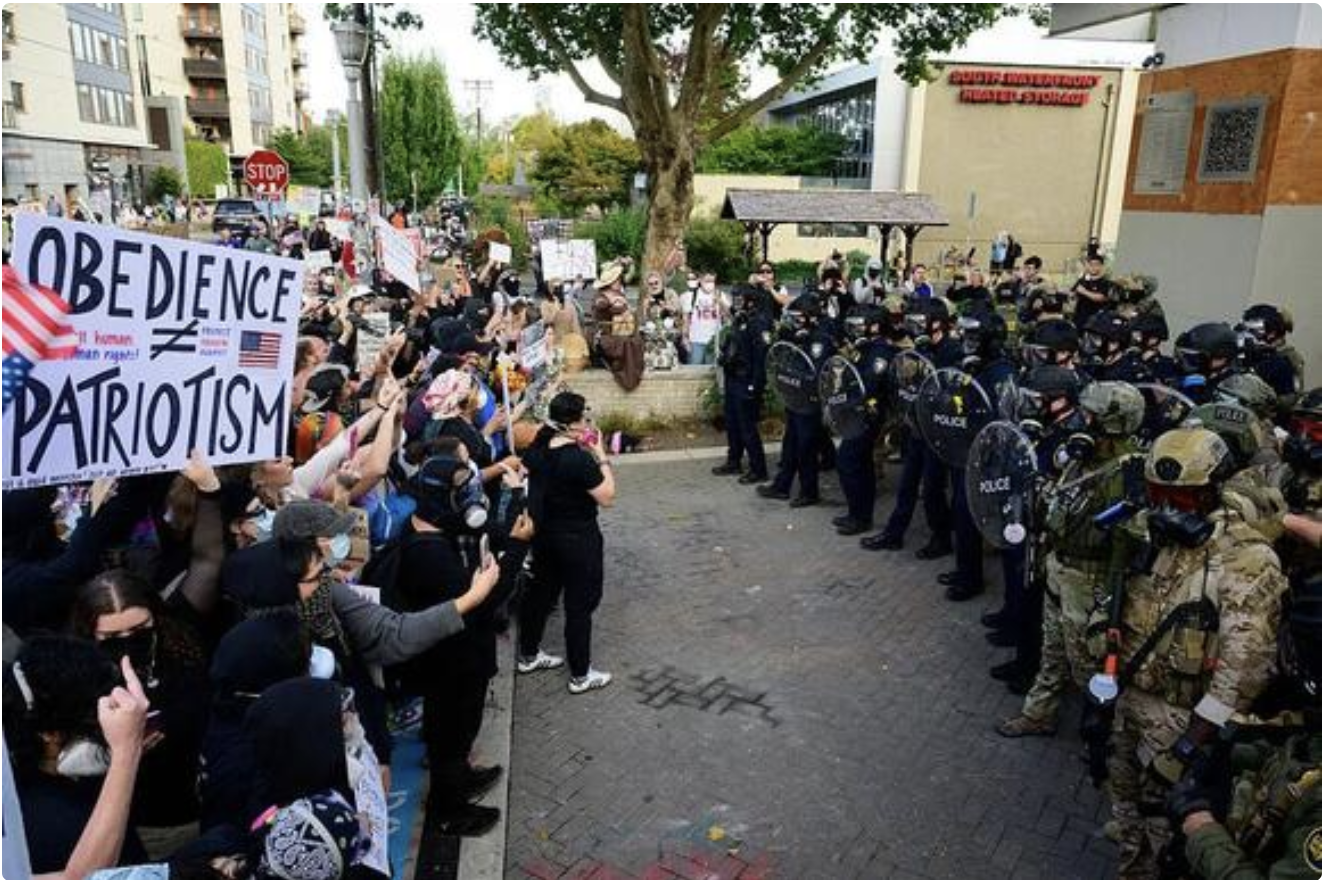PORTLAND, Ore. — Portland Mayor Keith Wilson has issued a strong rebuke of the Trump administration’s plan to deploy federal troops to his city, arguing that military intervention is both unnecessary and dangerous for a community that has worked hard to reform and heal.
Rejecting Federal Rhetoric
Wilson said the federal government’s description of Portland bears little resemblance to the city he leads. President Donald Trump has described Portland as “a hellhole” and “war ravaged,” while also declaring that a federal facility is “under siege.”
“There is no squaring these words with the Portland I see every day,” Wilson said. “This is a city of creativity, compassion, and purpose — not the battlefield the president imagines.”
Also Read
He emphasized that while Portland has seen protests and challenges, its defining character is one of resilience and community values.
Troops Versus Local Needs
The mayor contrasted federal calls for military deployment with the everyday needs of Portlanders.
“If you visited our schools, would you fund teachers or send troops?” Wilson asked. “If you drove our bridges, would you send engineers or troops? If you saw our hospitals, would you support Medicaid or send troops? If you met with daughters whose immigrant fathers were ripped away, would you still send men in masks to traumatize our neighborhoods?”
Wilson said these examples highlight the federal government’s retreat from its responsibilities to cities and communities, choosing militarization over investment in housing, healthcare, and local prosperity.
A Manufactured Perception
Wilson blamed a “24-hour ecosystem of divisive clips” for distorting Portland’s image nationwide. Many of the images being circulated, he said, are outdated or misrepresented but are used to feed anger and division.
“This ugly ecosystem cannot build togetherness,” Wilson said. “It can only hold us back.”
He called the portrayal of Portland as violent chaos “purposefully broken,” arguing it serves political expedience rather than the truth of daily life in the city.
Demanding Answers From Washington
Wilson said the federal government owes Portlanders clarity about what its “Full Force” authorization means.
“What is the mission of this deployment, and how will we know whether it has succeeded or failed?” he asked. “Should I tell our teachers and parents to carry on as normal, or should I tell our hospitals and morgues to prepare for the unthinkable?”
The lack of definition, Wilson warned, risks confusion and even tragedy if troops are sent without clear limits or objectives.
Oregon’s Citizen Soldiers
Wilson stressed that Oregonians know their National Guard members personally — as neighbors, parents, teachers, and local workers. These are the same people who respond during wildfires, floods, and foreign deployments.
“When these citizen soldiers answered the call, they made a solemn promise to their communities and nation,” Wilson said. “I believe that promise is now being dishonored by the federal administration.”
He expressed sadness that even after Portland cut its homicide rate in half, reformed its public safety system, and focused on its economy and most vulnerable residents, those efforts were not enough to prevent federal troops from being ordered in.
The Wrong Fight
Wilson rejected the idea that Portland is a battleground requiring militarization. Instead, he said the city’s tradition of large-scale peaceful protests and civic engagement has long been a source of progress for the nation.
“There is no military strength without moral strength,” Wilson said. “No good outcome comes from summoning tempers alongside rifles. And there is no margin for error in what may come next.”
He concluded by urging federal leaders to abandon fear and division in favor of cooperation and investment.
“The fight the federal administration seeks is not in our city,” Wilson said. “We call on our national leaders to chart a course toward the future — not toward further fear and division.”












